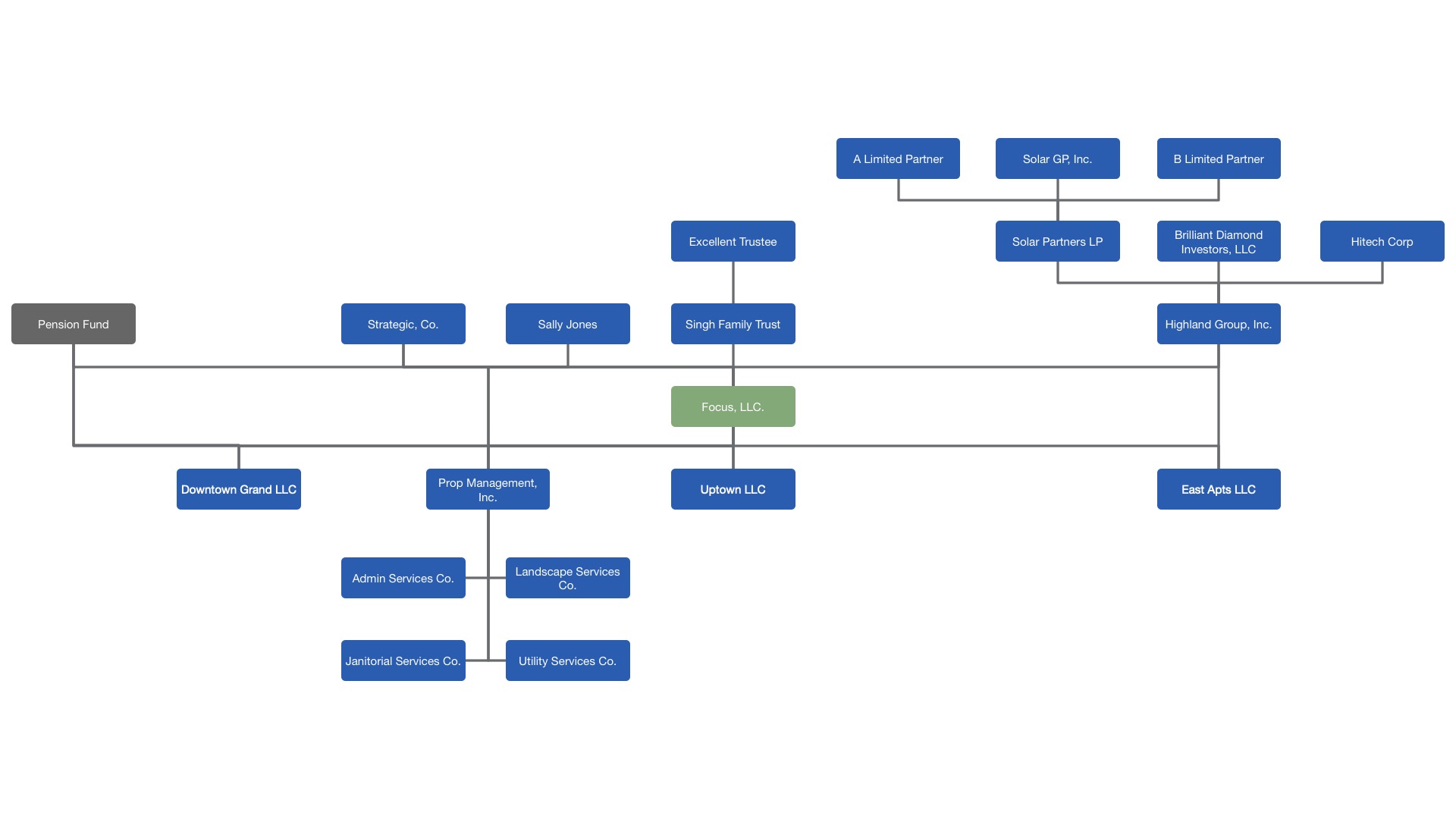Home>Finance>What Jobs Can You Get With A Health Insurance License?


Finance
What Jobs Can You Get With A Health Insurance License?
Published: October 29, 2023
Learn about the various job opportunities available in the finance sector with a health insurance license. Explore rewarding careers in finance and insurance.
(Many of the links in this article redirect to a specific reviewed product. Your purchase of these products through affiliate links helps to generate commission for LiveWell, at no extra cost. Learn more)
Table of Contents
- Overview of the Health Insurance License
- Job Opportunities in Health Insurance Sales
- Health Insurance Agent
- Health Insurance Broker
- Health Insurance Account Executive
- Health Insurance Customer Service Representative
- Health Insurance Claims Adjuster
- Health Insurance Underwriter
- Health Insurance Consultant
- Health Insurance Compliance Specialist
- Health Insurance Educator or Trainer
- Conclusion
Overview of the Health Insurance License
If you are interested in a career in the insurance industry, specifically in the field of health insurance, obtaining a health insurance license is a crucial step. A health insurance license is a professional certification that allows individuals to legally sell health insurance policies and provide related services to clients.
Each state has its own requirements and regulations for obtaining a health insurance license, so it is important to research and understand the specific requirements in your state. Generally, the process involves completing pre-licensing education courses, passing a licensing exam, and submitting an application to the state insurance department.
Once you have obtained your health insurance license, you become eligible for a variety of job opportunities in the insurance industry. The demand for health insurance professionals is high, and this field offers a range of rewarding and lucrative career paths.
Having a health insurance license not only demonstrates your expertise and knowledge in the field, but it also opens doors to various job roles where you can help individuals and businesses navigate the complex world of health insurance.
Whether you prefer sales, customer service, or more technical roles, there are plenty of options available to you with a health insurance license. In the following sections, we will explore some of the most common job opportunities in the field of health insurance sales and related professions.
Job Opportunities in Health Insurance Sales
Obtaining a health insurance license opens up a wide range of job opportunities in the field of health insurance sales. If you have excellent communication and sales skills, and enjoy working with people to help them find the right insurance coverage, a career in health insurance sales may be a perfect fit for you.
Here are some of the job roles you can pursue with a health insurance license:
Health Insurance Agent:
A health insurance agent works directly with individuals and families to help them find the most suitable health insurance plans. They assess their clients’ needs, explain different policy options, and guide them through the enrollment process. They may work independently or be employed by insurance companies or brokerage firms.
Health Insurance Broker:
A health insurance broker acts as an intermediary between clients and insurance carriers. They evaluate various insurance plans from different providers and help clients find the best coverage for their needs and budget. Brokers often work with businesses to provide employer-sponsored health insurance plans.
Health Insurance Account Executive:
Account executives in health insurance focus on maintaining relationships with clients and ensuring their satisfaction. They work closely with insurance brokers and agents to address client inquiries, resolve issues, and provide ongoing support. Account executives may also participate in business development activities to attract and retain clients.
Health Insurance Customer Service Representative:
A customer service representative in health insurance assists policyholders with inquiries, claims, and policy-related issues. They provide support, answer questions, and ensure a positive customer experience. This role requires strong communication and problem-solving skills.
Health Insurance Claims Adjuster:
A health insurance claims adjuster evaluates insurance claims, determines coverage eligibility, and processes claim settlements. They review medical records, investigate claims, and negotiate with medical providers and policyholders to ensure accurate and fair claim decisions.
These are just a few examples of the job opportunities available in the field of health insurance sales. Each role offers unique challenges and rewards, and your specific interests and skills will guide you towards the most suitable position.
Health Insurance Agent
A health insurance agent plays a crucial role in helping individuals and families navigate the complex world of health insurance. As a licensed agent, you will work directly with clients to understand their needs and guide them in selecting the most appropriate health insurance plans.
Here are some key responsibilities of a health insurance agent:
Educating Clients:
One of the primary responsibilities of a health insurance agent is to educate clients about different policy options, coverage limits, and benefits. This includes explaining the details of deductibles, copayments, and out-of-pocket expenses. Agents must ensure that their clients fully understand their insurance policies and feel confident in their coverage choices.
Assessing Client Needs:
Agents work closely with individuals and families to assess their unique needs and determine the most suitable health insurance plans. This involves analyzing factors such as budget, medical history, preferred doctors or hospitals, and desired coverage. Agents use this information to guide their clients towards policies that best fit their specific requirements.
Enrollment Assistance:
Health insurance agents assist clients with the enrollment process. They help individuals and families navigate online portals, complete paperwork, and submit necessary documents. Agents ensure that all enrollment deadlines are met and the necessary information is accurately provided.
Policy Comparisons:
Agents conduct thorough comparisons of different insurance policies to help clients make informed decisions. They analyze coverage details, costs, network providers, and any additional features or benefits offered by various insurance carriers. Agents present these comparisons to their clients, highlighting the pros and cons of each policy.
Client Relationship Management:
Building and maintaining strong relationships with clients is essential for a health insurance agent. Agents provide ongoing support, address client concerns, and assist with any post-enrollment issues or claim inquiries. Cultivating trust and rapport with clients is crucial for long-term success in this role.
Health insurance agents can either work independently or be employed by insurance companies or brokerage firms. Independent agents have the flexibility to represent multiple insurance carriers and offer a wider range of policy options to their clients. They are responsible for managing their own business, including customer acquisition and maintaining compliance with industry regulations.
Being a health insurance agent requires excellent communication, interpersonal, and sales skills. It is essential to stay updated on current healthcare policies, industry trends, and regulatory changes. By effectively guiding clients through the health insurance landscape, agents play a vital role in helping individuals and families secure the coverage they need.
Health Insurance Broker
A health insurance broker serves as an intermediary between clients and insurance carriers, helping individuals and businesses find the most suitable health insurance coverage. As a licensed broker, you will work independently or with a brokerage firm to assist clients in navigating the complex landscape of health insurance.
Here are some key responsibilities of a health insurance broker:
Evaluating Insurance Plans:
As a broker, one of your main responsibilities is to evaluate a variety of insurance plans from different providers. You will analyze the coverage options, costs, networks of healthcare providers, and any additional benefits or features offered by each plan. This evaluation allows you to provide your clients with comprehensive information to make informed decisions.
Assessing Client Needs:
A health insurance broker works closely with individuals, families, and businesses to understand their specific insurance requirements. This involves conducting detailed assessments of their needs, including budget considerations, desired coverage levels, preferred doctors or hospitals, and any specific healthcare needs. Brokers use this information to identify the most appropriate insurance plans that meet their clients’ needs.
Providing Expert Advice:
As a health insurance broker, you are expected to have in-depth knowledge of health insurance policies, industry trends, and regulatory changes. You will provide expert advice to clients, explaining complex insurance terms and helping them understand the intricacies of different policy options. Your expertise will guide clients in making well-informed decisions.
Assisting with Enrollment:
Health insurance brokers play a significant role in assisting clients with the enrollment process. You will help clients complete applications, gather necessary documentation, and submit them to insurance carriers. Brokers ensure that all enrollment requirements are met within specified deadlines, simplifying the process for their clients.
Client Relationship Management:
Building and maintaining strong relationships with clients is essential for a health insurance broker. Brokers provide ongoing support, answer questions, address concerns, and assist with any post-enrollment issues or claims inquiries. This personalized approach builds trust and establishes long-term partnerships with clients.
Health insurance brokers often work with employers to provide group health insurance plans to businesses. They negotiate with insurance carriers on behalf of their clients, securing the most competitive rates and comprehensive coverage options.
Working as a health insurance broker requires excellent communication, negotiation, and interpersonal skills. Staying updated on industry changes, market trends, and regulatory requirements is vital. By acting as a knowledgeable guide and advocate for their clients, health insurance brokers play a critical role in helping individuals and businesses make informed decisions about their health insurance coverage.
Health Insurance Account Executive
A health insurance account executive is responsible for managing relationships with clients and ensuring their satisfaction with their health insurance coverage. As an account executive, you will work closely with insurance brokers, agents, and clients to provide ongoing support, address inquiries, and ensure a positive customer experience.
Here are some key responsibilities of a health insurance account executive:
Client Relationship Management:
Building and maintaining strong relationships with clients is a crucial aspect of being a health insurance account executive. You will serve as the primary point of contact for clients, understanding their needs, addressing concerns, and providing personalized assistance. Developing trust and rapport with clients is essential for long-term partnerships and client retention.
Supporting Insurance Brokers and Agents:
Health insurance account executives work closely with insurance brokers and agents, providing them with the necessary support, resources, and information to effectively serve their clients. This involves assisting with policy comparisons, explaining coverage details, and addressing any client-related inquiries or issues that arise.
Resolving Client Issues:
When clients encounter challenges or have questions about their health insurance coverage, it is the responsibility of the account executive to provide prompt and effective resolution. This may include coordinating with internal teams, such as customer service or claims departments, to address and resolve client concerns in a timely manner.
Providing Renewal Assistance:
As policies approach their renewal dates, the account executive plays a crucial role in facilitating the renewal process. This includes communicating with clients about their renewal options, explaining any changes in coverage or premiums, and assisting in the renewal process to ensure a smooth transition for the client.
Business Development:
Health insurance account executives may also be involved in business development activities to attract and retain clients. This may include participating in client meetings, presentations, and industry events to showcase the company’s services and expertise, as well as identifying opportunities to expand the client base.
Excellent communication, interpersonal, and problem-solving skills are essential for a health insurance account executive role. Staying updated on industry trends, regulatory changes, and new products or services is critical to providing knowledgeable and effective support to clients and partners.
Overall, health insurance account executives play a vital role in maintaining strong relationships with clients, ensuring their satisfaction with their health insurance coverage, and supporting insurance brokers and agents. By providing personalized and responsive assistance, account executives contribute to the success and growth of the organization and foster long-term client loyalty.
Health Insurance Customer Service Representative
A health insurance customer service representative plays a crucial role in assisting policyholders with their inquiries, claims, and other policy-related issues. As a customer service representative, you will serve as the primary point of contact for individuals who have questions or need assistance with their health insurance coverage.
Here are some key responsibilities of a health insurance customer service representative:
Handling Inquiries:
Customer service representatives are responsible for addressing a wide range of inquiries from policyholders. These inquiries may include coverage questions, claim status updates, billing inquiries, network provider information, and general policy-related questions. Customer service representatives must provide accurate and timely information to ensure a positive customer experience.
Assisting with Claim Process:
When policyholders need to file a claim, customer service representatives guide them through the process. This includes explaining the necessary documentation, assisting with claim submission, and providing updates on the status of the claim. Representatives may also handle claim-related inquiries, such as claim denials or requests for additional information.
Resolving Policy-related Issues:
Policyholders may encounter issues or complications with their health insurance coverage. Customer service representatives are responsible for addressing and resolving these issues in a prompt and professional manner. This may involve coordinating with other internal departments, such as claims or underwriting, to ensure that policyholders receive the necessary assistance and solutions.
Providing Policy Guidance:
Customer service representatives assist policyholders in understanding the details of their health insurance policies. They explain coverage options, benefits, copayments, deductibles, and other policy details to policyholders, helping them make informed decisions about their healthcare needs. Representatives may also recommend additional coverage options or services that may be beneficial to policyholders.
Building Rapport with Policyholders:
Cultivating positive relationships with policyholders is essential for a health insurance customer service representative. Representatives should strive to provide empathetic and personalized customer service, demonstrating a genuine concern for the well-being of policyholders. By building rapport and trust, customer service representatives contribute to the overall satisfaction and retention of policyholders.
Excellent communication, problem-solving, and interpersonal skills are essential for a health insurance customer service representative. It is also important to stay updated on policy changes, healthcare regulations, and industry trends to provide accurate and relevant information to policyholders.
Overall, health insurance customer service representatives play a vital role in ensuring policyholder satisfaction and providing assistance throughout the policy lifecycle. By delivering excellent customer service and resolving issues in a timely manner, representatives contribute to a positive experience for policyholders and contribute to the success of the health insurance company.
Health Insurance Claims Adjuster
A health insurance claims adjuster is responsible for evaluating and processing insurance claims submitted by policyholders. As a claims adjuster, you will review medical records, assess policy coverage, and work with policyholders, healthcare providers, and other stakeholders to ensure accurate and fair claim settlements.
Here are some key responsibilities of a health insurance claims adjuster:
Evaluating Claims:
Claims adjusters carefully review and evaluate the details of insurance claims submitted by policyholders. This involves reviewing medical records, invoices, and other documentation to assess the authenticity and accuracy of the claim. Adjusters also ensure that the claimed expenses are covered under the policy terms and conditions.
Determining Coverage Eligibility:
Claims adjusters examine policy coverage details to determine the eligibility of the claim. They assess whether the claimed medical services or treatments are covered under the policy, verifying the policy terms, limits, deductibles, and any applicable exclusions. Adjusters communicate any coverage limitations or exceptions to the policyholder or healthcare provider.
Negotiating with Providers:
Claims adjusters may negotiate with healthcare providers to determine accurate pricing for services rendered. They may engage in discussions with medical facilities or doctors to verify the charges and negotiate reductions if needed. Adjusters strive for fair and reasonable reimbursement amounts that align with the policy coverage and industry standards.
Communication with Policyholders:
Claims adjusters communicate with policyholders throughout the claims process, providing updates on the status of their claims and addressing any inquiries or concerns they may have. Adjusters explain claim decisions, coverage details, and claim payment calculations, ensuring policyholders have a clear understanding of their reimbursement or claim denial.
Claim Settlements:
After completing the evaluation process, claims adjusters determine the appropriate amount of reimbursement based on policy coverage and applicable deductibles. They prepare settlement offers and process approved claim payments in a timely manner. Adjusters ensure accurate documentation and maintain records of claim settlements.
Health insurance claims adjusters need strong analytical skills, attention to detail, and knowledge of policy terms and medical coding. They must stay updated on industry regulations and guidelines to ensure compliant and accurate claims processing. Strong communication and negotiation skills are also essential for effectively interacting with policyholders and healthcare providers.
Overall, health insurance claims adjusters play a vital role in ensuring accurate and fair claim settlements for policyholders. By carefully evaluating claims, determining coverage eligibility, and working to resolve any disputes, claims adjusters contribute to the effective functioning of the health insurance system and ensure policyholder satisfaction.
Health Insurance Underwriter
A health insurance underwriter plays a critical role in assessing the risk associated with insuring individuals or groups. As an underwriter, you analyze various factors such as medical history, age, demographics, and claims history to determine the appropriate premiums and coverage limits for health insurance policies.
Here are some key responsibilities of a health insurance underwriter:
Evaluating Risk:
Underwriters assess the level of risk associated with insuring individuals or groups. They review medical records, application forms, and other relevant information to evaluate the potential for future claims. By analyzing this data, underwriters determine the likelihood of claims being made and the associated costs for the insurance company.
Calculating Premiums:
Based on the risk assessment, underwriters determine the appropriate premiums that policyholders should pay for their health insurance coverage. This involves considering the level of coverage, policy limits, deductibles, and any pre-existing conditions. Underwriters collaborate with actuarial teams to ensure that premiums accurately reflect the level of risk.
Policy Approval:
Underwriters review insurance applications and assess the suitability of applicants for coverage. They use their expertise to determine whether to approve or decline applications based on policy guidelines and risk assessment. Underwriters may also impose certain conditions or exclusions based on the individual’s medical history or other factors.
Monitoring Risk and Claim Patterns:
Health insurance underwriters continuously monitor the risk and claim patterns of policyholders. They analyze claims data and industry trends to identify patterns and adjust insurance policy terms and premiums accordingly. This helps insurance companies manage risk and ensure that premiums remain fair and adequate.
Collaboration with Sales and Actuarial Teams:
Underwriters collaborate with sales teams to provide guidance and support in quoting, renewing, and modifying policies. They work closely with actuarial teams to develop pricing models and assess the financial implications of various policy decisions. Underwriters provide input to these teams, helping to ensure the financial stability and profitability of the insurance company.
Being a health insurance underwriter requires strong analytical, decision-making, and problem-solving skills. It also requires an understanding of medical terminology, healthcare regulations, and industry trends. Effective communication and collaboration with various internal and external stakeholders are crucial for success in this role.
In summary, health insurance underwriters assess risk, calculate premiums, and determine policy eligibility based on individual and group profiles. By carefully evaluating risk factors and applying sound judgment, underwriters contribute to the stability and profitability of insurance companies while providing individuals and groups with reliable and affordable health insurance coverage.
Health Insurance Consultant
A health insurance consultant is a knowledgeable professional who provides expert advice and guidance on health insurance-related matters. As a consultant, you work closely with individuals, businesses, and organizations to help them make informed decisions about their health insurance needs and plans.
Here are some key responsibilities of a health insurance consultant:
Evaluating Insurance Needs:
Consultants assess the unique insurance needs of individuals or businesses. They analyze factors such as budget, coverage requirements, employee demographics (for businesses), and desired network of healthcare providers. By understanding these factors, consultants can provide recommendations for the most suitable health insurance plans.
Policy Analysis and Comparison:
Health insurance consultants analyze and compare various policy options from different insurance carriers. They evaluate coverage details, premiums, deductibles, copayments, and other policy features. Consultants provide objective insights and help clients understand the similarities and differences among the available options.
Customized Plan Recommendations:
Based on their analysis, health insurance consultants offer personalized recommendations tailored to each client’s unique needs. They consider factors such as budget, desired coverage levels, specific healthcare needs, and preferred network providers. Consultants present clients with a customized plan that suits their requirements and aligns with their financial capabilities.
Assistance with Enrollment and Implementation:
Health insurance consultants guide clients through the enrollment process, ensuring that all necessary paperwork is completed accurately and in a timely manner. They assist with the implementation of the chosen health insurance plans, answering any questions and addressing concerns that may arise during the transition period.
Industry Knowledge and Updates:
Health insurance consultants stay updated on the latest industry trends, regulations, and changes in healthcare policies. This knowledge allows them to provide clients with accurate and relevant information. It also equips consultants to guide clients through industry developments and help them adapt their health insurance plans accordingly.
Excellent communication, interpersonal, and problem-solving skills are essential for success in the role of a health insurance consultant. Consultants must effectively communicate complex insurance terms and concepts in a clear and understandable manner. Building trust and rapport with clients is also crucial to establish long-term relationships.
Overall, health insurance consultants provide valuable expertise and guidance to help individuals and businesses navigate the complexities of the health insurance landscape. By offering personalized recommendations and staying updated on industry developments, consultants ensure that clients make informed decisions and secure the right health insurance coverage for their specific needs.
Health Insurance Compliance Specialist
A health insurance compliance specialist is responsible for ensuring that insurance companies and policyholders adhere to relevant laws, regulations, and industry standards. As a compliance specialist, you play a crucial role in maintaining the integrity and ethical practices of the health insurance industry.
Here are some key responsibilities of a health insurance compliance specialist:
Monitoring Regulatory Compliance:
Compliance specialists have a deep understanding of the laws and regulations governing the health insurance industry. They monitor changes in regulations and requirements at the federal, state, and local levels, ensuring that insurance companies and policyholders comply with these standards. Compliance specialists also stay updated on industry guidelines and best practices.
Developing Compliance Policies:
Compliance specialists develop and implement policies and procedures to ensure adherence to regulations. They collaborate with various departments within the insurance company to create policies that promote ethical practices, data privacy, claims handling, and fair treatment of policyholders. Compliance policies aim to mitigate risks and maintain the trust of policyholders and regulatory authorities.
Conducting Internal Audits:
Compliance specialists perform regular internal audits to assess the company’s compliance with regulations and industry guidelines. They evaluate operational processes, systems, and documentation to identify areas of non-compliance and recommend corrective actions. Internal audits ensure that insurance companies maintain high standards of compliance and mitigate potential risks.
Policy Document Review:
Compliance specialists review health insurance policy documents to ensure accuracy, clarity, and compliance with regulations. They ensure that policies contain all necessary disclosures, coverage details, benefits of the plan, and limitations in a transparent and understandable manner. Compliance specialists also review marketing materials to ensure compliance with advertising regulations.
Staff Training and Education:
Health insurance compliance specialists provide training and education to employees to promote a culture of compliance within the organization. They conduct training sessions on relevant laws and regulations, company policies, and ethical practices. Compliance specialists ensure that employees understand their obligations and responsibilities to maintain compliance in their daily operations.
Strong analytical skills, attention to detail, and knowledge of healthcare regulations and industry standards are essential for a health insurance compliance specialist. Compliance specialists must also possess excellent communication and problem-solving abilities to effectively address compliance issues and provide guidance to stakeholders.
By ensuring adherence to regulations and industry standards, health insurance compliance specialists contribute to maintaining the integrity of the health insurance industry. They promote ethical practices, protect the rights of policyholders, and help in building trust between insurance companies, policyholders, and regulatory authorities.
Health Insurance Educator or Trainer
A health insurance educator or trainer plays a vital role in providing education and training on health insurance topics to various stakeholders, including insurance professionals, employers, policyholders, and the general public. As an educator or trainer, you help individuals understand the intricacies of health insurance, coverage options, policy terms, and the importance of proper healthcare management.
Here are some key responsibilities of a health insurance educator or trainer:
Developing Educational Materials:
Educators or trainers create educational materials such as presentations, brochures, videos, and online resources to provide clear and concise information on health insurance topics. They ensure that these materials are accessible, easy to understand, and tailored to the specific audience they are intended for.
Delivering Training Sessions:
Educators or trainers conduct training sessions and workshops on health insurance-related topics. These sessions may cover a wide range of subjects, including insurance basics, policy coverage, claims management, and navigating the healthcare system. Trainers use engaging and interactive methods to enhance learning and ensure participants grasp the concepts effectively.
Policyholder Education:
Educators or trainers focus on educating policyholders about their health insurance coverage. They explain policy details, including deductibles, copayments, network providers, and coverage limitations. Educators help individuals understand how to effectively utilize their health insurance benefits, empowering them to make informed healthcare decisions.
Training Insurance Professionals:
Educators or trainers also provide training to insurance professionals, including agents, brokers, and customer service representatives. They ensure that professionals are up to date with the latest industry regulations, policies, and customer service techniques. Training sessions may focus on effective communication, compliance with regulations, and staying informed about industry changes.
Industry Updates and Consultation:
Educators or trainers stay informed about industry trends, policy changes, and healthcare reform initiatives. They provide consultation and guidance to insurance professionals and organizations, helping them navigate the complex and evolving landscape of the health insurance industry.
Excellent communication skills, subject matter expertise, and the ability to simplify complex information are crucial for health insurance educators or trainers. They must also stay updated on the latest industry developments and regulatory changes to provide accurate and relevant information to their audience.
In summary, health insurance educators or trainers play a vital role in promoting understanding and awareness of health insurance concepts among various stakeholders. By delivering education and training, they empower individuals to make informed decisions about their health insurance coverage, improving overall healthcare management and outcomes.
Conclusion
Obtaining a health insurance license opens up a world of exciting job opportunities in the insurance industry. Whether you choose a career as a health insurance agent, broker, account executive, customer service representative, claims adjuster, underwriter, consultant, or educator/trainer, there is a role that aligns with your skills and interests.
As a health insurance professional, you have the opportunity to make a meaningful impact in people’s lives by helping them navigate the complexities of health insurance coverage. You can guide individuals and businesses in finding the most suitable plans, providing them with peace of mind and financial protection in times of need.
From educating clients about policy options to assisting with enrollment, resolving problems, and ensuring compliance, each role requires specific skills and expertise. Health insurance agents use their knowledge and sales skills to guide clients in choosing appropriate coverage. Brokers act as intermediaries and provide comparative analysis to help clients make informed decisions. Account executives maintain relationships with clients and address their needs throughout the policy lifecycle. Customer service representatives offer support and assistance to policyholders, resolving inquiries and ensuring a positive customer experience. Claims adjusters assess and process insurance claims, while underwriters evaluate risk and determine appropriate premiums. Consultants provide expert advice, and educators/trainers deliver education and training on health insurance topics.
Overall, the field of health insurance offers a rewarding and dynamic career path. It requires a deep understanding of insurance policies, industry trends, regulatory compliance, and effective communication skills. By combining your expertise in health insurance with excellent customer service, problem-solving abilities, and staying updated on industry developments, you can excel in whatever role you choose in the health insurance industry.
Whether you aim to help individuals find the right coverage, support businesses with their health insurance needs, or ensure compliance and ethical practices, your expertise and contributions are valued. Remember, as a health insurance professional, you have a profound impact on individuals and organizations, providing them with the protection and support they need to navigate the ever-changing landscape of healthcare.













